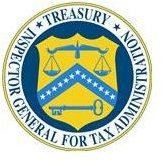What Kinds of Taxes Do Businesses Have to Pay? Part One
Introduction
What kinds of taxes do businesses have to pay and why? While not the most enjoyable part of doing business, it is nevertheless a requirement in order to stay within legal operation. In the midst of planning to open a new business, or managing an existing business, an entrepreneur or small business owner must consider more than his or her products or services, marketing, and operation.
Business taxes are an inevitable part of doing business. Typically, some form of business taxes are required on the federal, state, and local levels. While specific taxes vary based on the type of business in operation, four standard kinds of taxes businesses have to pay include income, employment, self-employment, and excise taxes.
Four Primary Types of Business Taxes
The four primary types of business taxes include the following.(1)
Income Taxes
In the US, all businesses must file federal income tax returns annually, with the exception of partnerships; businesses under this structure file information returns instead. Income taxes are considered “pay-as-you-go” - in other words, as you earn or receive income.
Businesses may pay taxes one of three ways:
- Withholding from paychecks
- Paying quarterly estimated taxes
- Paying annually at the time of filing
Self-Employment Taxes
Entrepreneurs who rank as self-employed don’t escape the burden of paying taxes. They must pay self-employment (SE) taxes that cover the government’s social security and Medicare taxes, to qualify for social security benefits upon reaching retirement age. This tax is required after earning $400 or more annually. Self-employed individuals may pay the SE tax either as quarterly estimated taxes or as annual payments when filing their returns. For 2010 earnings, the SE tax rate was 15.3 percent; in 2011, the rate decreased to 13.3 percent.
The SE tax is divided as follows:2
- 2010 rate of 15.3 percent: 12.4 percent for social security and 2.9 percent for Medicare.
- 2011 rate of 13.3 percent: 10.4 percent for social security and 2.9 percent for Medicare.
The full SE tax rate applies for earnings up to $106,800; above that amount, entrepreneurs only have to pay the 2.9 percent Medicare portion.
Employment Taxes
Any business owner who has employees must pay three basic taxes, and file the relevant paperwork, per employee:3
- Social security and Medicare taxes; the business owner must withhold a portion of these taxes from each employee’s paycheck and pay a matching amount of each employee’s SS and Medicare taxes, based on federal tax guidelines.
- Federal income taxes via withholding; the business owner must withhold taxes based on federal guidelines.
- Federal unemployment taxes (known as FUTA); these taxes are fully the responsibility of the business owner, not withheld from employee paychecks.
Four Primary Types of Business Taxes
Excise Taxes
Businesses must pay excise taxes if any of the following are true:4
- Business manufactures/sells certain types of products
- Business operates as a specific type of business
- Business uses specific types of equipment, facilities, or products
- Business receives payments for specific types of services
Since the rules and terms described above vary greatly, it is essential that each business owner ascertains what excise taxes may apply to his or her business.
Additional Types of Business Taxes
Additional types of business taxes depend on the nature of the business, as well as its location; for instance:5
- Some geographical locations require business owners to pay city and/or state sales taxes.
- Some businesses may need to pay property taxes on their primary places of business.
Conclusion
Part of the responsibility of owning and operating a business includes paying taxes. It is important for any business owner to know what kinds of taxes do businesses have to pay relevant to his or her own business. The four primary business taxes include income, self-employment, employment, and excise taxes. Other taxes vary based on the type of business classification or structure, and location.
*NOTE* This article does not intend to offer business tax advice. It is strictly provided as an overview of the subject of primary business taxes. Please consult a tax professional to learn about the business taxes that apply to your specific business.
References, Resources, and Image Permissions
References
1, 4 IRS.gov. Business taxes. Retrieved from https://www.irs.gov/businesses/small/article/0,,id=98966,00.html
2 IRS.gov. Self-employment taxes. Retrieved from https://www.irs.gov/businesses/small/article/0,,id=98846,00.html
3 IRS.gov. Employment taxes. Retrieved from https://www.irs.gov/businesses/small/article/0,,id=172179,00.html
5Tax Foundation. State and local tax burdens. Retrieved from https://www.taxfoundation.org/taxdata/show/335.html
Resources
IRS.gov. Business structures. Retrieved from https://www.irs.gov/businesses/small/article/0,,id=98359,00.html
IRS.gov. Estimated taxes. Retrieved from https://www.irs.gov/businesses/small/article/0,,id=110413,00.html
IRS.gov. Business tax forms. Retrieved from https://www.irs.gov/businesses/small/article/0,,id=99194,00.html
IRS.gov. Tax calendar for small businesses and self-employed. Retrieved from https://www.irs.gov/businesses/small/article/0,,id=176080,00.html
Dummies.com. Small business taxes for dummies. Retrieved from https://www.dummies.com/how-to/business-careers/small-home-business/Taxes.html
Image Permissions
Tax Logo/US Government - Wikimedia Commons
Typing - Wikimedia Commons/NotFromUtrecht
